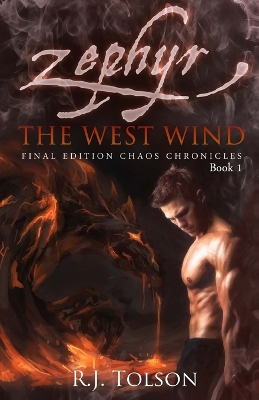Reviewed by Raven on
Being the child of an outsider, Zephyr's very existence is a constant reminder that his mother disobeyed the rules of their village by loving his father. Growing up not really understanding why his village hated him so, Zephyr was determined to show his village he was worthy of their praise. After failing to pass the ceremony that would label him as an adult in the eyes of his people, Zephyr is given one last chance. He passes his ceremony and is given a task to hunt down three objects of power that will benefit his village. Setting out with his companion, Leon, Zephyr hopes to become powerful so he can make a name for himself.
This story starts out with Zephyr narrating things, something I am rather not fond of, but luckily, it doesn't stick. What threw me the most, was that the story, the cover, everything about this book made me think is was aimed at middle school kids. I was expecting a 10-15 age range, but I got what felt like a 7-13 age range instead. A good book should entertain you, so that you don't even notice that by reading you are getting smarter. This book I saw the education more than I saw the entertainment. The writing is so polished that it is unrelatable. It's great that the author is showing himself to be a great example for kids in proper sentence structure, but it was at the cost of charm and passion. Because of it, the whole story felt rather flimsy and flat to me. I also hated how it had "tv show syndrome." "Tv show syndrome" is how every new episode has to go into an overly descriptive recap of the episode before it. This book does the same things, recapping every previous chapter in one of the most annoying ways possible (think Pokémon). There was also A LOT of telling going on. Things would be repeated and thought out when they were obvious. The description would let the readers know that the characters just learned something, just for a character (usually Zephyr) to reiterate it right afterwards. It made the writing seem like it was dumbing itself down even more for an audience that doesn't need it. The writing alone felt like an insult. I'm sure a kid would feel the same. I can imagine giving this book to my 12 year old cousin just for him to laugh at the writing as ask for something harder. I think his 7 year old sister would feel the same way.
The characters weren't that bad. Leon was incredibly predictable. The foreshadowing for him was not even close to subtle. Autumn was a rather unimpressive character, and I honestly couldn't root for her and Zephyr. Their "love" was sudden and flat. Zephyr was a bit dense, and his ambitions were questionable to me. They were just unrealistic. I do think he was a good role model though. His ability to see good in people and to want to do good was a really nice thing for children to see and learn from.
The plot wasn't bad. It would've been more entertaining with better writing, but as a plot goes, I actually rather enjoyed it. It felt like The Last Airbender meets Dragonball, which will appeal to a lot of young kids. There were a lot of inconsistencies. I can understand they might be tackled in a later book in the series, but when you are writing for kids, you can't do that. You have to wrap up and answer all questions before you get to the end where you begin the conflict for the next book. There were quite a few inconsistencies that needed taken care of. A big one would be why Zephyr was able to see Autumn in his dreams.
All in all, this was a good book. While I think it needed to be written more with it's audience in mind instead of under estimating their intelligence, the plot was good and the story was entertaining. This is one of those that you should feel confident giving to your 7-13 year old to read.
Reading updates
- Started reading
- 30 January, 2013: Finished reading
- 30 January, 2013: Reviewed
